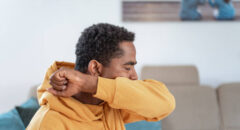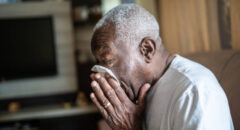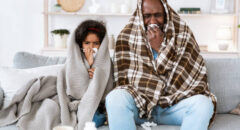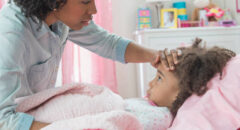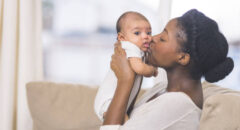
It’s natural for new parents to be feel overwhelmed by all the potential health risks that exist for a newborn baby. But potentially more devastating is the harm that can be caused by an illness that is innocuous-seeming nature, such as Respiratory Syncytial Virus (RSV). Like it or not, your baby may be more at risk than you think.
What is RSV?
RSV is actually a very common virus that resembles the common cold, generally infecting almost all babies by two years of age. Studies have shown that RSV accounts for one of every 10 visits to a pediatrician. RSV usually causes moderate-to-severe cold symptoms, such as runny nose, coughing and/or a fever.
How Is RSV Spread?
RSV, like other cold viruses, is easy to spread to other people. Sometimes it can be spread by close contact with a person who is sneezing or coughing or touching things that have RSV on them. The most common way to spread RSV is by hand contact.
RSV season usually starts in the fall and runs through the spring. But in some areas of the United States, RSV season may last all year.
Sounds Like A Basic Cold – What’s The Problem?
This virus becomes more dangerous for premature babies (born at less than 36 weeks) or those with certain heart problems or chronic lung disease. These babies are more susceptible to health risks due to their immature immune systems and underdeveloped lungs; it can cause them to become extremely, even fatally, ill. Every year, about 125,000 infants in the United States are hospitalized with severe RSV disease, and it’s the leading cause of infant hospitalization.
Sadly, severe RSV infections may cause up to 500 infant deaths annually in the United States.
According to Dr. Mitchell Goldstein, president of the National Perinatal Association (NPA) and chair of the NPA’s RSV Guideline Committee, it’s very easy for parents to be caught off guard by RSV.
“People think of RSV as the common cold, so they’re not as concerned,” says Dr. Mitchell Goldstein. “But serious infection, without proper treatment can not only lead to death, but to long term morbidity, asthma, lung disease, escalating medical costs and parents lost time at work.”
A particular area of concern is the threat of RSV for African American babies. Since Black women have the highest rate of premature births (18.3%), this means nearly 100,000 Black babies are born early in the United States each year, according to the CDC.
Which Babies Are At A Higher Risk?
Your baby could be at high risk for severe RSV disease if he or she:



